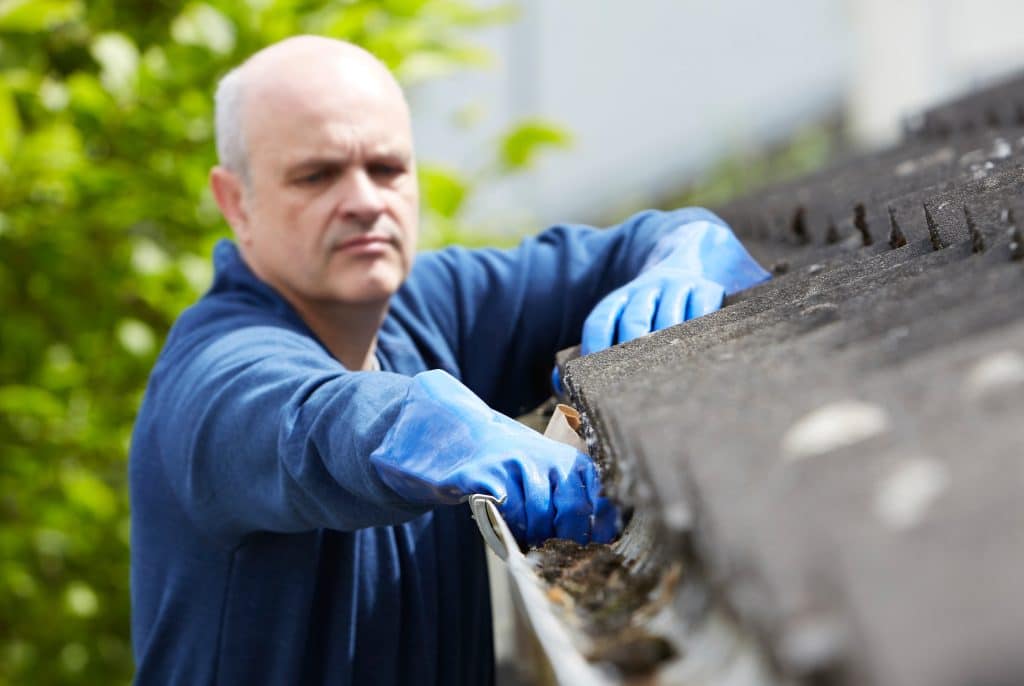Hurricane season is an annual event that affects millions of people living in Florida and the coastal regions. Because of the regularity, many people don’t take it so seriously.
But when a hurricane hits your home hard, you’ll be glad you were prepared.
Most people think prepping a hurricane kit and knowing their evacuation route is all you need to be prepared for hurricane season, but there’s a lot more to hurricane preparedness than that. The most important thing to keep in mind about preparing for hurricane season is that you can do it at any time, meaning don’t wait until the weatherman tells you to shelter in place.
So even if you’re still reeling from last storm season, check out these tips on preparing for hurricane season.
Hurricane Preparedness Step 1: Review Your Home Insurance Policies
The first step to preparing for hurricane season is to review your insurance policies.
It’s important to know what your policy covers and what it doesn’t cover. Make sure you have adequate coverage for your home, personal property, and any additional living expenses that may arise if you need to evacuate. Consider purchasing flood insurance if you live in a flood-prone area, as most homeowners’ insurance policies do not cover flood damage. Even if you aren’t in a high-risk flood zone, flood insurance is a valuable policy to have, and it’s probably not as costly as you think.
It’s also important to understand your policy’s deductibles and limits.
A deductible is an amount you’ll have to pay out of pocket if you file an insurance claim, and you will be responsible for paying your deductible before your insurance company coverage payment takes effect.
On most home policies, the hurricane deductible is a percentage of what the dwelling is insured for (2%, 5%, etc.). In Florida, it is a calendar year deductible, so it will apply only once a calendar year.
Limits refer to the maximum amount your insurance company will pay for damages.
Make sure you have enough coverage to protect your home and assets, and that you can cover the out-of-pocket expenses as well.
It’s crucial that you review your insurance policies early because many flood insurance policies have a 30-day waiting period before they take effect. To ensure that you have the right coverage for your home, plan ahead accordingly.

Hurricane Preparedness Step 2: Check Your Home’s Exterior
The next step in hurricane preparedness is to check for any exterior threats to your home. Tree branches dangling near your house, small cracks in the windows, roof debris, and more issues that are fine during good weather but with high winds and heavy rain, can cause significant damage to your property.
Remember, preparing ahead of the storm can help protect you during the storm.
Here are some things you can do to protect your home:
- Check Your Roof: Your roof is your home’s first line of defense against the elements. Make sure your roof is in good condition by inspecting it for damage or missing shingles. Hire a professional if you’re not comfortable inspecting it yourself.
- Trim Trees and Branches: Trees and branches can become projectiles during a hurricane. Trim trees and branches that are close to your home to prevent damage.
- Reinforce Your Fence: A fence can easily be blown over during a hurricane. Reinforce your fence by securing it with concrete posts and ensuring it’s properly anchored.
- Clean Your Gutters and Downspouts: Cleaning your gutters will prevent clogs that could cause water to overflow and damage your home.
- Install Storm Shutters or Board Up Windows: When the storm is officially on its way, install storm shutters or board up windows to prevent debris from breaking them. Make sure the shutters or boards are properly secured.
Hurricane Preparedness Step 3: Get Your Hurricane Kit Ready
Interior preparations focus on how you will protect yourself and your family in the event of a storm. Getting your hurricane kit prepped and ready to go is something you can do at any time.
Your hurricane kit should include items like canned food, extra batteries, clothes, flashlights, books and games to keep you occupied, and anything else you would want in case your power is out and you’re unable to leave you home for an extended period of time.
You can have your hurricane kit ready to go at any time, but before storm season, make sure to double check everything.
- Create an Emergency Kit: Create an emergency kit that includes items such as a first aid kit, flashlight, batteries, non-perishable food, water, and a radio. Make sure you have enough supplies for at least three days.
- Check Your Supplies and Replace Expired Items: Check your hurricane kit and replace any expired items. Also, make sure you have enough supplies for all family members, including pets.
- Ensure You Have Adequate Water and Food Supplies: Make sure you have one or more gallons of water per person per day. You will also need at least enough non-perishable foods to last for three days. Finally, it is recommended that you store additional water for washing and flushing toilets.
- Prepare for Power Outages: Power outages are common during hurricanes. Have extra batteries and a portable charger for your phone. Consider purchasing a generator if you’re in an area with frequent power outages.
- Safeguard Important Documents: Store important documents such as insurance policies, passports, and birth certificates in a waterproof container or safe.
Hurricane Preparedness Step 4: Have an Evacuation Plan
Having an evacuation plan is crucial in case a hurricane becomes too dangerous to stay in your home. A good evacuation plan ensures that your family understands the plan that they will follow in the event of a hurricane. This plan brings peace of mind to your immediate family members as well as extended family and friends.
Here are some steps to creating an evacuation plan:
- Understand Your Area’s Hurricane Evacuation Routes: Research your area’s hurricane evacuation routes and have a plan in place.
- Identify a Safe Place to Go: Identify a safe place to go, such as a friend or family member’s house, a hotel, or a designated shelter. Make sure this place is outside of the hurricane’s projected path.
- Plan for Your Pets: If you have pets, identify pet-friendly hotels or shelters, and make sure you have enough food and water for them.
- Pack an Emergency Kit: Pack an emergency kit that includes important documents, medications, and a change of clothes.
- Communicate with Family and Friends: Make sure your family and friends know your evacuation plan and how to reach you in case of an emergency.

Don’t Wait to Prepare Your Home for Hurricane Season
Preparing your home for the hurricane season is crucial to ensure your safety and protect your property, although it can seem overwhelming.
To be better prepared, start your preparations early. It’s never a bad time to clean your gutters, trim loose branches, or review your insurance coverage.
If you have questions about your home insurance coverage, the team at Brown Insurance Services is available to assist you in evaluating your policy at any time. Don’t hesitate to reach out to us for help today.

